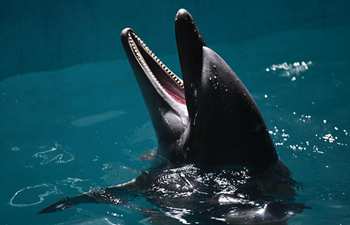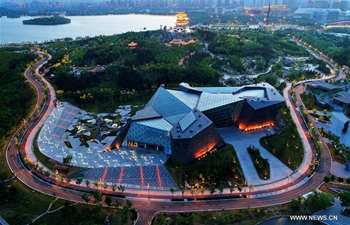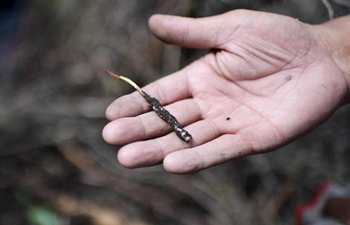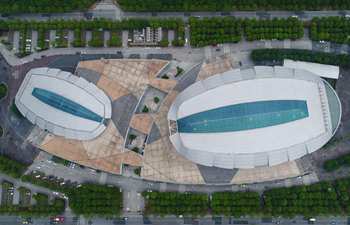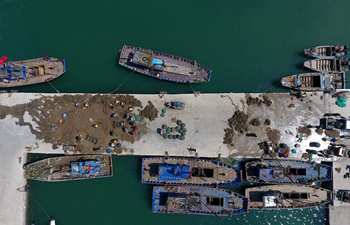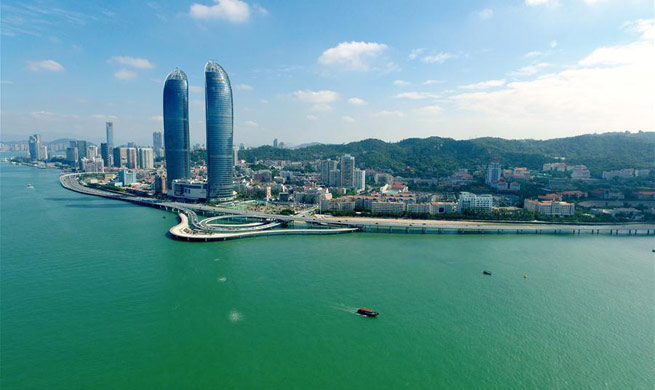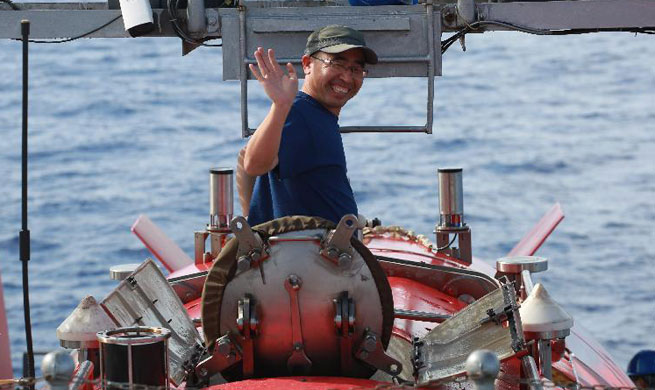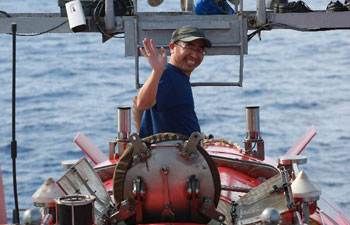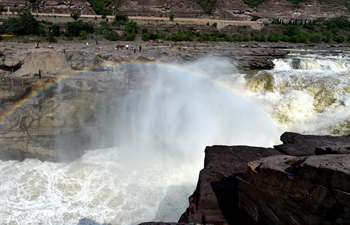BRUSSELS, May 24 (Xinhua) -- NATO leaders will address the alliance's role in the fight against terrorism and burden-sharing at the upcoming summit amid persistent disagreements on these two issues across the bloc.
Speaking in Brussels on the eve of U.S. President Donald Trump's visit to the city, NATO secretary general Jens Stoltenberg said on Wednesday that the Manchester terror attacks underlined the need for the western alliance to "do more" in the fight against terrorism and the attacks would be discussed at the NATO leaders' meeting on Thursday.
He said at a press conference at NATO's headquarters that "NATO has a role to play here and I expect NATO allies to commit to step up and agreeing to do more."
"I expect NATO allies will send a clear message of unity in the face of such terrorism and that we will stand together to fight this," Stoltenberg told reporters.
Trump is scheduled to meet EU leaders Thursday, including European Commission President Jean-Claude Juncker and European Council President Donald Tusk, before attending the NATO summit.
Stoltenberg sought to dispel lingering doubts about the U.S. president's commitment to the alliance that he once called "obsolete."
The Trump administration has made NATO spending a centerpiece of his foreign policy, as the president complained throughout his campaign that U.S. allies had been taking advantage of American largesse. NATO members agreed in 2014 to increase their defense spending to 2.0 percent of gross domestic product (GDP).
Stoltenberg said Trump and his security team had stated that the U.S. was strongly committed to NATO, adding that, "I hope and I expect that he will reiterate his strong commitment to NATO."
Regarding the other major topic of burden sharing, Stoltenberg pointed out defense spending among NATO's European allies was rising "after many years of decline."
But he stressed that Europe's security was not a "question of either/or."
He added, "We need both American and European investment in NATO."
Looking ahead to Trump's visit, UK Conservative foreign affairs spokesman Charles Tannock said: "President Trump is known to like doing business face-to-face and this trip has been his first opportunity to meet EU leaders on their own soil."
"Hopefully, both sides took the chance to set aside the rhetoric, sound each other out and lay the foundations of a strong political and security relationship. It is much easier to reach an understanding when you are in the same room, not hailing each other across the Atlantic."
"Trump has admitted to changing his mind about international bodies like NATO and I believe he will also learn from EU leaders that the EU can be a reliable ally and partner for the United States and that its prosperity and stability is very much in America's interest," Tannock said.
Giovanni Grevi of the European Policy Centre, said, "Trump's nationalist political instincts are at odds with what the EU stands for. However, given the breadth and depth of transatlantic ties, both Washington and Brussels have an interest in taking a pragmatic approach to mutual relations," adding that Trump has toned down his anti-EU rhetoric since taking office.
"However, Europeans struggle to detect any coherent approach by the Trump administration to Europe," said Grevi.
"There is much uncertainty as to what Trump will say in Brussels this week, but it is very likely that the transatlantic partnership will become a more transactional and selective one over time. In particular, trade and climate change may prove divisive issues down the line," said Grevi.




